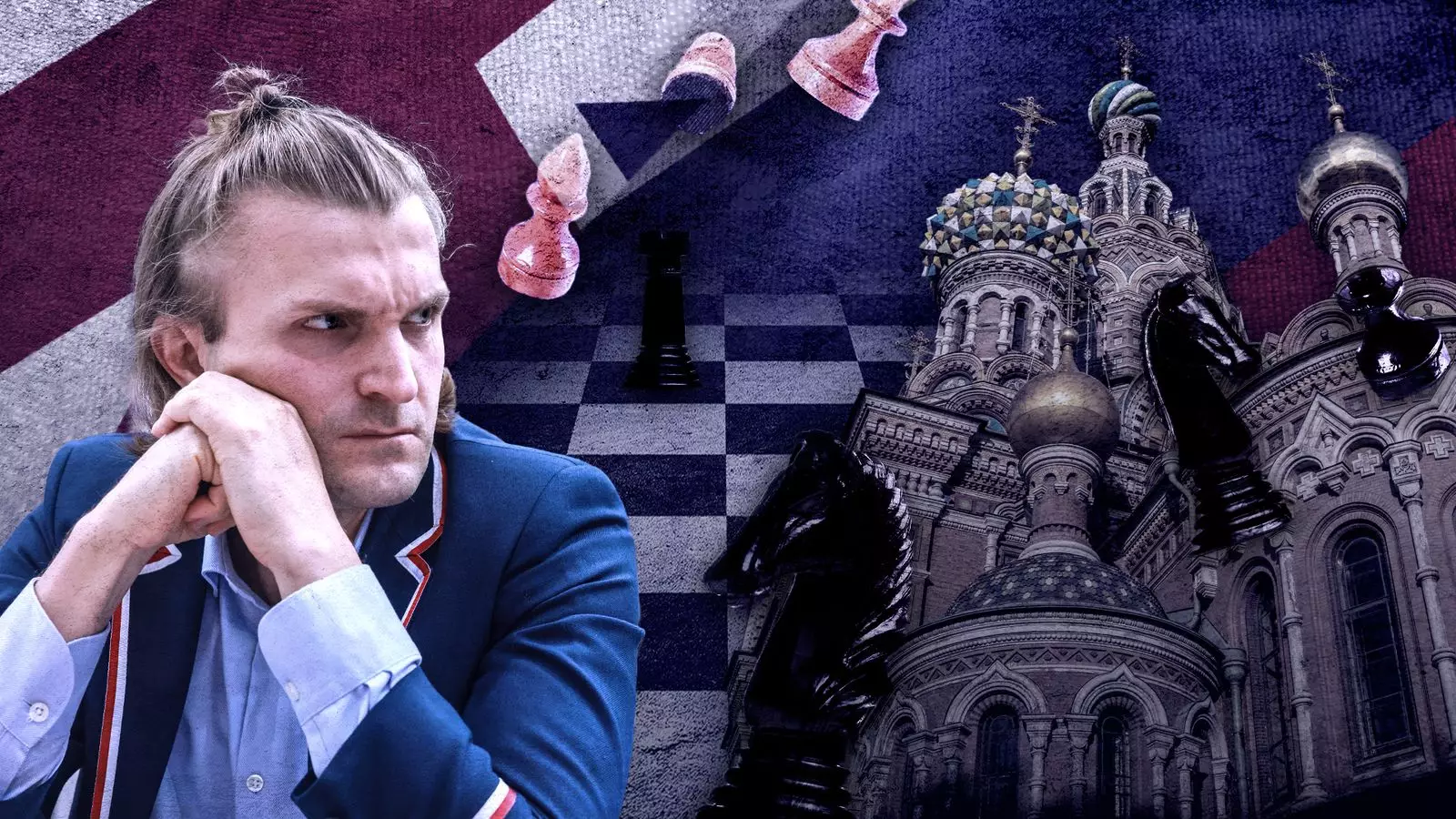Nikita Vitiugov, a name that resonates with chess enthusiasts, has turned his back on his native Russia, choosing instead to build a new life in London. The grandmaster finds a peculiar familiarity in the damp, overcast atmosphere of England, reminiscent of his hometown, St. Petersburg. In a world where chess is often linked to national pride and identity, Vitiugov’s shift from Russia to England is far more than just geographical; it encapsulates a profound emotional transformation fueled by political conviction and a yearning for freedom.
With the ongoing conflict in Ukraine, players like Vitiugov recognize that chess in Russia is not just a game; it is a symbol of the nation’s ideological battles and shifting allegiances. His candid remarks about feeling at home in London starkly contrast with the Russian media’s portrayal of the British capital as a modern-day ‘capital of hell.’ This dynamic reveals an underlying tension between Vitiugov’s personal beliefs and the national narrative in Russia, highlighting the sacrifices he has made in the name of conscience.
Choosing to publicly condemn the war in Ukraine put Vitiugov in a precarious position. Unlike many athletes who opt for silence or cautious diplomacy, he boldly stated, “You can’t defend yourself on foreign territory. Russians and Ukrainians are brothers, not enemies. Stop the war.” Such a declaration is particularly potent in a nation where dissent is often met with severe repercussions. Nikita’s courage resonates within a broader context, as an increasing number of Russian chess players have decided to speak out against the Kremlin’s aggressive policies, often at great personal risk.
His decision to represent England in international chess tournaments was not merely a change in allegiance; it was a clear departure from a past that he could no longer endorse. Facing a potential financial barrier—or a two-year hiatus from competitive play—Vitiugov secured his new identity with the help of the English Chess Federation, marking a profound and courageous leap into uncharted territory. This shift signifies a commitment not just to a different national flag but to a fundamentally new life where his opinions matter.
Adopting a new home and identity can be daunting, yet Vitiugov has embraced the change rather than shying away from it. He and his family now enjoy the freedoms that living in the UK affords them—freedoms denied to many back in Russia. As he notes, “One of the reasons for moving here is that I want the best future possible for my son… you’re free to have your own opinion which is great.” This assertion speaks volumes about the importance of a nurturing environment for personal and familial growth, especially in context to the trauma and upheaval stemming from the war.
His new life in London seems to invigorate Vitiugov, who is now eager to participate in tournaments that showcase his skill and resilience. The London Chess Classic is especially significant as a platform for him to reconnect with the chess community and solidify his position within it. However, the venue—Arsenal’s Emirates Stadium—adds a layer of irony for a Tottenham Hotspur fan like him, illustrating how sports can transcend rivalry and create unique stories of unity amid discord.
In reflecting on his iconic predecessors, Vitiugov makes it clear that while he admires Garry Kasparov, it is Viktor Korchnoi—the legendary St. Petersburg-born grandmaster known for his defiance against the Soviet regime—who serves as his true inspiration. Korchnoi’s journey from the Soviet Union to freedom resonates deeply with Vitiugov, echoing his own narrative of defiance and transition amid geopolitical strife.
Vitiugov’s arrival in the English chess scene has not only enhanced his personal career but has also invigorated the local chess community. With his rankings—currently number two in England and 61st worldwide—he amplifies the nation’s talent pool. His expertise and experience are of remarkable value in a time when the English Chess Federation aims to restore its former glory.
As he looks towards future championships, the prospect of a Russian grandmaster potentially becoming the new ruler of English chess is a poignant reminder of how sports can bridge divides, even amidst tumultuous times. Nikita Vitiugov’s journey offers hope and demonstrates that in the face of oppression, individuals can find new beginnings and redefine their identities on their own terms.


Leave a Reply